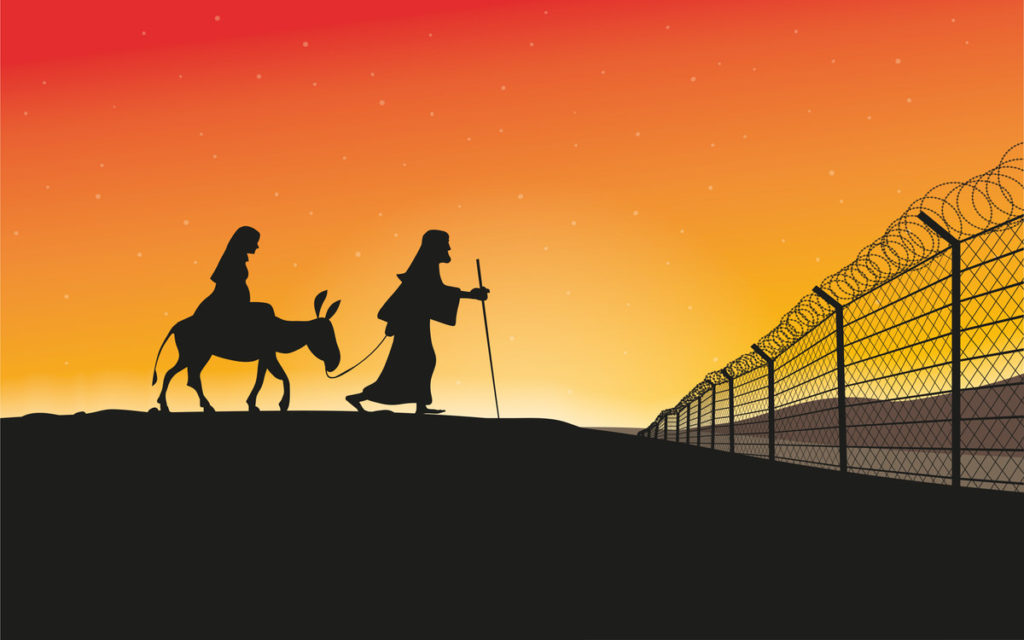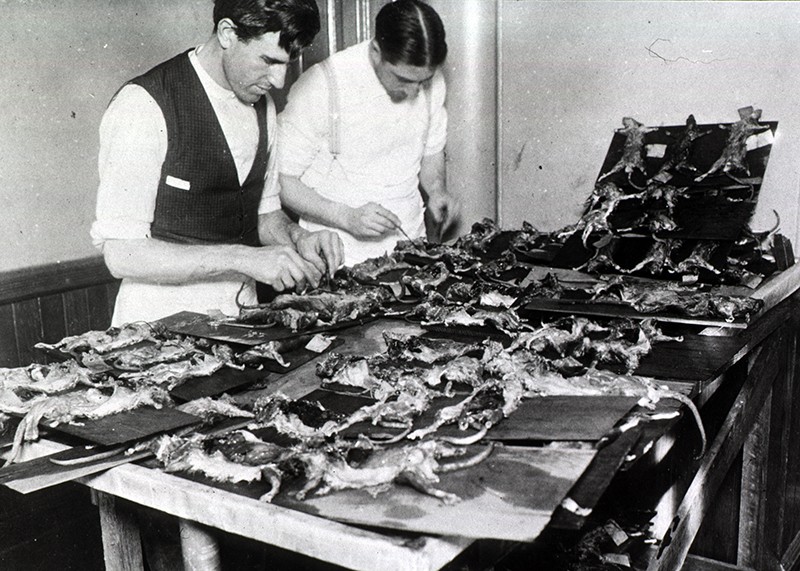How should we respond to manifestations of Hell on earth? The answer we give is a matter of prescription. In the preceding sections, we discussed the moral implications of the view of hell we take. In this section, I want to pose two questions: First, what does it mean to say that we have a duty to follow our moral principles? Second, when (if not always) do we have this duty?
IMAGE EIGHT
THE PLIGHT OF THE MIGRANT: “HELL ON EARTH”
The goal of this section is to meditate on the plight of the migrant, not necessarily to get into the nitty-gritty political questions surrounding the global crisis over the migration of peoples. To this end, I would like you to be prepared to talk about the following issues:
What does it mean to be a migrant?
When we consider the meaning of tragedies, such as the vast movement of peoples around the world, why do we, as human beings, struggle with the issue of empathy?
If we should be empathetic with the plight of the downtrodden, how can we turn ourselves around?
Jesus was a refugee without a home: She brought forth her firstborn son, and she wrapped him in bands of cloth, and laid him in a feeding trough, because there was no room for them in the inn (World English Bible)
21. Thursday, March 31
Discussion:
22. Tuesday, April 5
Discussion:
23. Thursday, April 7: VISITING SPEAKER
We are fortunate to have the opportunity to speak with Barbara Szweda, an attorney and expert in immigration law. Szweda has extensive experience with the issues and human experiences depicted in The Devil’s Highway.
COVID-19: “Sick as Hell”
24. Tuesday, April 12
What does our contemporary Hell–the Coronavirus pandemic–tell us about human beings? What will be the concrete implications of the Coronavirus for our daily lives? What do these implications suggest about the choices we should make?
We will approach these questions in two ways.  First, we will look back at a potential pandemic–one that has been long forgotten– that hit northern California in 1900: the bubonic plague. As you read the following book, ask yourself whether there are any similarities between the response to the plague 122 years ago and the pandemic we are currently seeking to survive:
First, we will look back at a potential pandemic–one that has been long forgotten– that hit northern California in 1900: the bubonic plague. As you read the following book, ask yourself whether there are any similarities between the response to the plague 122 years ago and the pandemic we are currently seeking to survive:
David K. Randall, Black Death at the Golden Gate, pp. 1-207.
Second, we will consider our contemporary predicament and ask the potential implications of the pandemic. I am providing possible scenarios (one can think of many more). As you read these articles, please ask why each is more, or less, persuasive, and why.
“The Pope sees the pandemic as a chance to ‘see’ the poor”: READ AND TAKE NOTES
Paul Krugman, “American Democracy May be Dying” READ AND TAKE NOTES
This article is very critical of former president Donald Trump. And why not? All of our leaders, Republicans and Democrats, should be subject to criticism; in fact, the idea of democratic representation suggests that they should be more subject to criticism than anyone else. After all, we have elected them; they hold power over our lives. Please feel free to disagree with the author (I do, in part).
Shari Rudavsky, “Indiana bill proposal seeks ivermectin as COVID treatment. Why pharmacists are up in arms” READ AND TAKE NOTES
IMAGE TEN
25. Thursday, April 14
NO CLASS
GLOBAL CLIMATE CHANGE: “The Fires of Hell”
26. Tuesday, April 19
Discussion: Do we have the same moral obligation to care for our planet that we have to care for our fellow human beings? How might our reaction–positive or negative–to the COVID pandemic be related to our response–or lack of a response–to the ongoing dangers of climate change.
Fourth National Climate Assessment (2017): Official Report to the US Congress and President: READ ONLY the Italicized summary points HERE
Pope Francis. Laudato Si’: A Summary : READ AND TAKE NOTES ON THE SUMMARY OF EACH BULLETED ITEM Concentrate on Sections II, IV, and VI.
A. James McAdams, “Post-Truth, Climate Change and the Idea of the Modern Catholic University” READ AND TAKE NOTES
Interview with Leonardo Boff: RE-READ focusing on the second part related to our natural environment.
Susan Brink, “Can’t Help Falling In Love With A Vaccine: How Polio Campaign Beat Vaccine Hesitancy” READ AND TAKE NOTES
Compared to the handling of the San Francisco plague and our current war against COVID, what was different about the campaign against polio? Why was this the case?
“Coronavirus holds key lessons about how to fight global climate change” READ and TAKE NOTES
What can the Coronavirus teach us about how to prepare for the looming existential danger of global climate change. I say “looming” in reference to the United States. Climate change has already resulted in the devastation of vast parts of the developing world, especially Africa. In fact, I shouldn’t even use “looming” for the US because the ravages of climate change are already upon us!
26. Thursday, April 21
Discussion: In this session, I would like to focus on the idea of Hope. Up to this point, we have looked at some pretty awful aspects of the human experience. Does this mean, however, that this is the whole story. I certainly hope not. I would not like you to come away from this class as hardened cynics. Indeed, I think we can–and should–come to the opposite conclusion. For humans to survive in a troubled world–one which is largely of their own making–we have to cultivate the opposite of cynicism. We must cultivate Hope. Today, I ask you to reflect with me about the meaning of Hope in our lives. Where does Hope come from? How do we maintain it?
Please read these articles about Hope. Identify their similarities and differences. As you read these articles, ask yourself whether they correspond with the views of any of the specific authors we have read this semester. If so, which ones? Or do they represent convincing alternatives to these authors’ arguments?
Kelly J. Baker, “Why I remain hopeful,” Chronicle of Higher Education PRINT AND READ
Samuel Scheffler, “The Importance of the Afterlife. Seriously. PRINT AND READ
Roy Scranton, “Raising my child in a doomed world” PRINT AND READ
Isaac Bashevis Singer, “Nobel Lecture” PRINT AND READ
Also, read the rest of Randall’s Black Death at the Golden Gate, pp. 208-246. Ask yourself whether there is any hope to be gained from his bleak depictions of America in peril.
And compare Randall’s story with the campaign to combat polio. What changed?
Opportunities for further thought:
What does it mean to love your neighbor? And why on earth is this subject relevant to our class? Two of many images from the Christian Bible:
2 Timothy 3: 1-5 READ
1 John 3: 16-18 READ
“Bears thriving at Yosemite. Clear skies. Does coronavirus reveal a ‘World Without Us’? READ and WATCH
Ecclesiastes 9:11 “I returned, and saw under the sun, that the race is not to the swift, nor the battle to the strong, neither yet bread to the wise, nor yet riches to men of understanding, nor yet favor to men of skill; but time and chance happen to them all.
No one ever asks me why I put this passage from the Bible at the end of my courses. Will you?
Your final essay assignment is HERE
¥
